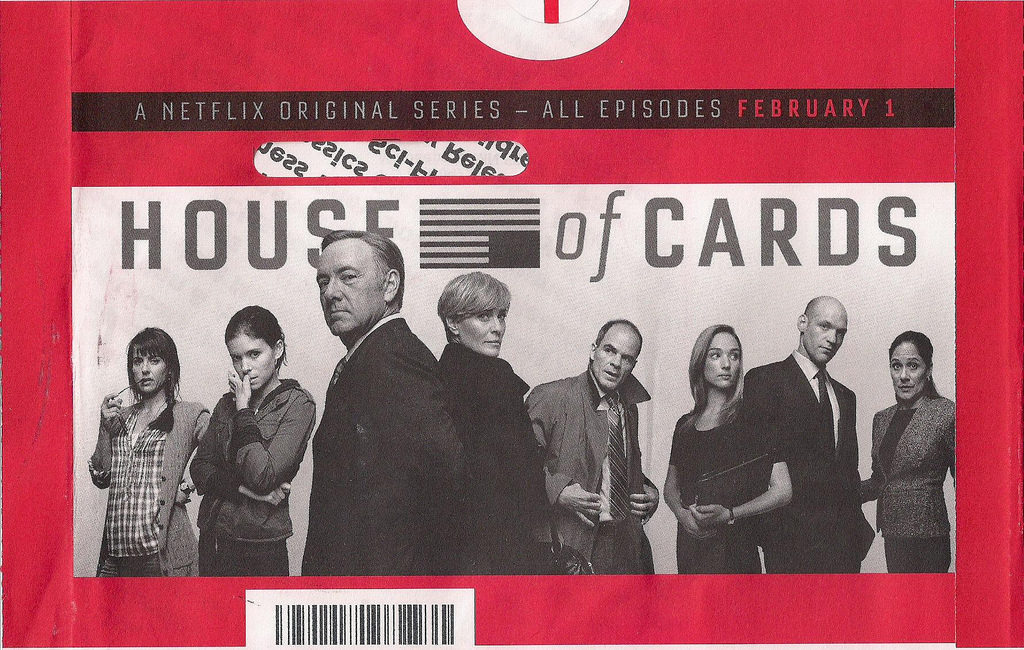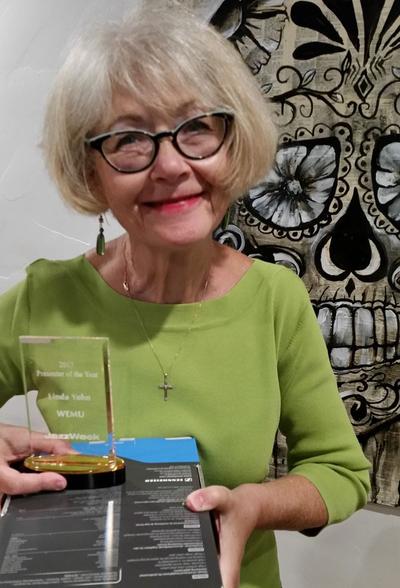 Netflix is not having a good week. The news the star of the award-winning “House of Cards” – Kevin Spacey – is no longer employed because of accusations of sexual harassment is the next chapter in a growing list of stars and celebs who are scandalously and quickly falling from grace.
Netflix is not having a good week. The news the star of the award-winning “House of Cards” – Kevin Spacey – is no longer employed because of accusations of sexual harassment is the next chapter in a growing list of stars and celebs who are scandalously and quickly falling from grace.
Netflix took the opportunity to cancel “House of Cards,” a show that had perhaps jumped the political shark anyway. After all, how could Spacey’s President Frank Underwood provide more thrills, spills, and controversy than the real-life occupant of the Oval Office?
An article in the LA Times ominously titled “Neflix has a mess on its hands with the collapse of ‘House of Cards,’ actually concludes the video streaming network will probably come out of this imbroglio just fine.
That’s because the company moved quickly to clean up the Spacey mess. And more importantly, as journalists David Ng and Meg James point out, Netflix has a strong bench.
Habit-forming shows that have already garnered impressive audiences, including “Stranger Things,” “The Crown,” and “Orange Is The New Black,” should sustain Netflix while it continues to purchase and produce new series that will have us buzzing – and subscribing.
This got me to thinking about the many radio stations I consider to be “haves” – those that feature a rock star personality doing the heavy lifting in the ratings. While some argue that radio broadcasting is bereft of hit shows, the fact is there are many, many great local personalities, as well as major league syndicated shows that carry a lot of weight for many radio brands.
But what would happen if one of these iconic, highly popular personalities were to meet with a similar fate to Spacey – or ran into a situations involving a cross-market move, an illness, and many of the other issues that impact people – famous or not?
This actually happens a lot, and Detroiters remember the summer of 1995 when venerable WJR morning monster, J.P. McCarthy, suddenly became ill, took himself off the air, and died a short time later. Weekender Paul W. Smith became J.P.’s permanent sub, but this event was a reminder not only that life is short, but so can be radio dominance.
One of the hardest things in radio to achieve is building a great show. But perhaps just as challenging is having a Plan B if someone exits for whatever the reason – the star, the second banana, or the producer.
The inconvenient truth is that even for many stations gifted with a dominant, bigger than life personality or show, the brand may be a house of cards. Success may be consistent when times are good, but sustainability in difficult situations can be shaky.
 Radio should have learned its lesson during Howard Stern’s exodus to the greener and unregulated pastures of satellite radio. If you ran down the list of successful Stern stations in the early 2000s, most are either gone or simply nowhere near as successful today.
Radio should have learned its lesson during Howard Stern’s exodus to the greener and unregulated pastures of satellite radio. If you ran down the list of successful Stern stations in the early 2000s, most are either gone or simply nowhere near as successful today.
One of the shining exceptions has been Entercom’s KISW. Dave Richards had that Plan B in B. J. Shea who was waiting in the wings, working elsewhere n the cluster. Later, “The Mens Room” joined the station lineup, and KISW has never been stronger.
On public radio’s mega-Washington, D.C. station, WAMU and NPR have successfully transitioned from “The Diane Rehm Show” that ruled the midday airwaves for years with “1A,” hosted by up-and-coming star Joshua Johnson.
And we’re not just talking about morning shows. A prime, impactful personality may be working in other dayparts, too. Replacing them can be every bit as challenging. Hubbard Radio Chair & CEO Ginny Morris made that point at this summer’s Morning Show Boot Camp in Atlanta. In an interview with Scott Shannon, Ginny talked about the need for great brands to have multiple stars that matter to listeners and advertisers – not just a great morning show.
A personality you may never have heard is a case in point. WEMU is the public radio Jazz/News station broadcasting out of Ypsilanti, Michigan. Their midday host and music director, Linda Yohn, is stepping down after 30 years on the job.
the public radio Jazz/News station broadcasting out of Ypsilanti, Michigan. Their midday host and music director, Linda Yohn, is stepping down after 30 years on the job.
Nationally, Linda is a prominent player in the jazz community, winning National Jazz Programmer of the Year five times. She’s not only a fixture in the WEMU community, Linda is beloved throughout southeast Michigan for her contribution to jazz music and education.
For WEMU, replacing Linda may be as challenging as what a Rock or Country station might go through after losing a popular morning show or host. WEMU is part of the culture of the area, and has several gifted hosts. But Linda’s retirement is a reminder to any and every radio station that day will indeed come.
Building a strong bench is one of those quiet programming achievements that never wins Marconi or Crystal awards, or makes headlines in the industry trades. But for brands that hope to endure and thrive for decades – not just rating books – it could be the most important contribution a PD or GM can make.
Who’s on your bench?
- Old Man, Take A Look At My Ratings - December 20, 2024
- In The World Of On-Demand Audio, How Do We Define Success? - December 19, 2024
- Scenes From The Classic Rock Highway – 2024 Edition - December 18, 2024




You Bet! Boomer DH/Bench Coaches deliver championships!
Thanks, Clark!
Fred, I’d love to hear what your client station managers have to say about this issue. A lot of the “majors” have gone to syndicating morning shows…some successful, some not so. These are excellent points that were brought up when automation came in and started eliminating the “development” shifts-weekends, overnights. It’s obviously not been corrected except for “premium choice” and the aforementioned syndication. You deal with radio groups and owners-and it would be great to see what those who are holding the keys to the future of broadcasting say. Do they want to develop a long-term future? Or just look at what might happen tomorrow?
There are some companies who “get it” and are focused on developing talent. But as you note, the need for economic “efficiencies” (that is, cutbacks) has all but eliminated the farm team. When you think about the value of many heritage radio brands, often hinged on one daypart, it just makes strategic sense to address the issue of “tomorrow.” Thanks for the comment, Dave.
The toughest part about building a successful station is hiring the best talent……and that includes those that start on the second or third string. They just don’t grow on trees!
No, Jason, they don’t. But we have to look for ways to bring them up, coach them, and prepare them for full-time work. As part-time, weekend, and night shows have disappeared, I look to podcasting as a way for producers and fledgling jocks to hone their craft and develop a following. Maybe it’s just a different type of farm team. Thanks for commenting.
Fred,
Once again you have taken a top of mind topic, and addressed the radio world with a bullseye. The tough reality is that there is no bench in today’s corporate radio. The exceptions are wonderful, but savvy young people have found other routes that utilize many of the same communication skills in order to stay employed. The “bench” was where tons of talent learned the game, with few consequences; overnight and weekend jocks, fill-ins, production assistants and interns. During the last ten years colleges closed radio departments and hired pros, and radio stations called me as a career advisor, wondering where the usual stream of interns went. I usually lied to them, but the students took their interests elsewhere. Some got in as street team and board-op’s, strung along with the false promise of more work to come. NAB should address this and nurture and encourage real mentoring and solid scholarships, look to the audio industry for a playbook. It is not too late to build a real, national and local bench.
Tai, it’s a true need and a real challenge for radio. It starts with the acknowledgment that personality is, in fact, radio’s “steel sword.” And then it’s building a strategy to attract talented people. Let’s hear it for unions. When I programmed WRIF, being a part-timer was a pretty damn good job. That helped us attract people who could’ve been full-time whenever needed. A bench is one of the great assets you can have, whether you’re A.J. Hinch or Bill Weston. Thanks for the comment.
To use a NASA parlance: “No bucks without Buck Rogers.”
There you go – good to hear from you, John.